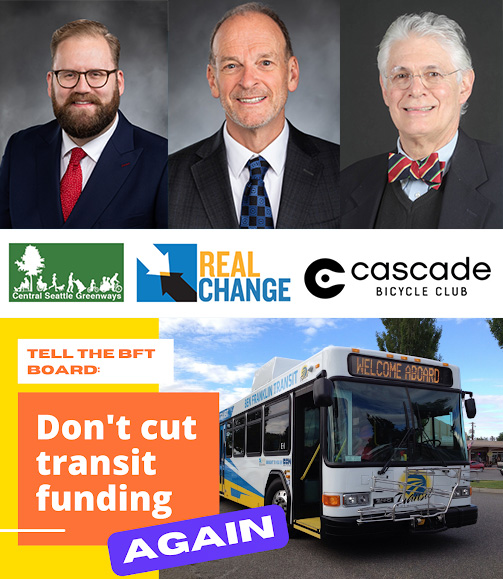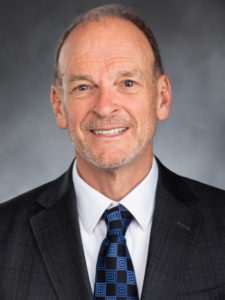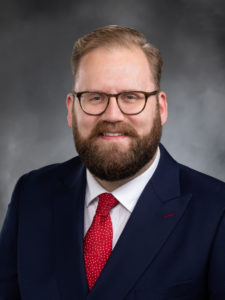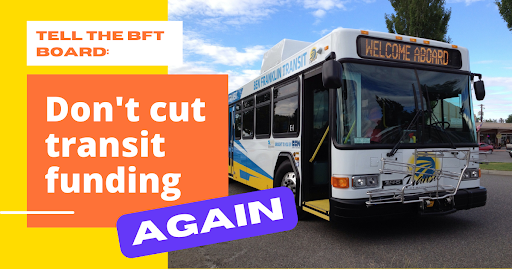

Transportation Choices is proud to announce our 2022 inductees into our Hall of Fame! This year’s awardees represent a diverse group of individuals and coalitions that are fighting for sustainable and equitable transportation systems that serve ALL people regardless of income or race. Our list includes state legislators, local activists, and agency leaders from across our state:
- Senator Marko Liias and Representative Jake Fey
- Ed Frost
- Helmet Law Working Group
- Ben Franklin Transit Coalition
Keep scrolling to read more about our inductees!
Senator Marko Liias and Representative Jake Fey

 Earlier this Spring, Senator Marko Liias and Representative Jake Fey led the legislature in the development and passage of Move Ahead Washington — a historic 16-year transportation package for Washington state. This landmark package will more than triple the amount Washington invests in transit and active transportation while providing funds for transit agencies to go fare-free for riders 18 and under. Allocating $5.2 billion for improved walking, biking, and transit options; this transformative investment moves us toward a future with accessible and robust public transportation, connected communities, green jobs, and clean air and water. And it wouldn’t have been possible without the leadership of Senator Liias and Representative Fey.
Earlier this Spring, Senator Marko Liias and Representative Jake Fey led the legislature in the development and passage of Move Ahead Washington — a historic 16-year transportation package for Washington state. This landmark package will more than triple the amount Washington invests in transit and active transportation while providing funds for transit agencies to go fare-free for riders 18 and under. Allocating $5.2 billion for improved walking, biking, and transit options; this transformative investment moves us toward a future with accessible and robust public transportation, connected communities, green jobs, and clean air and water. And it wouldn’t have been possible without the leadership of Senator Liias and Representative Fey.
Q&A with Rep. Jake Fey
1. Please tell us about the policy and coalition. What achievements are you most proud of?
Other than being a part of raising two wonderful children, I would say that for my time as a City Council member in Tacoma it would be the establishment of an Office of Sustainability in city government and the hiring of a very qualified and effective City Manager to replace a city manager that had put the City of Tacoma in a very bad financial position.
In the legislature I would point to four things: 1) The construction of a community center on the eastside of Tacoma that has given youth a great facility to enjoy and advance their lives. (This is a challenging part of Tacoma that had no place for young people to go to.) 2) Passage of the Connecting Washington Package in 2015 which I played a major role in that authorized Sound Transit 3. 3) Passage of the Green Transportation Package in 2019 that created a comprehensive program to address climate in the transportation sector. 4) Passage of Move Ahead Washington in 2022, especially the climate and equity components and provided for record investments in active transportation, transit, and carbon reduction.
2. What is your hope for the future of transit and transportation in Washington?
As far as transit goes I am hoping for a recovery in ridership and then growth in transit ridership, especially for the disabled and the vulnerable who do not have robust options right now that meet their transportation needs. The net effect of the growth, I hope, will result in a major contribution to the state’s carbon reduction efforts as well. For transportation generally, I hope that Move Ahead Washington will make a large dent in our preservation and maintenance backlog and address some major safety improvements like the Interstate Bridge and otherwise reduce congestion. Finally, it is my hope that we will address the unsustainable funding associated with the gas tax and put transportation funding on a more secure footing.
3. At Transportation Choices, we know working together we go farther — who have been your greatest allies, partners or influences in your transit work?
During my time on the Sound Transit Board I very much appreciated the leadership of Joannie Earl. There are a great number of allies in my caucus that support transit, including representatives Slater, Valdez, Ramos, Riccelli, and Fitzgibbon, to name a few. And we couldn’t be effective without the great work of Transportation Choices and the Washington Transit Association.
Senator Marko Liias and Representative Jake Fey
Earlier this Spring, Senator Marko Liias and Representative Jake Fey led the legislature in the development and passage of Move Ahead Washington — a historic 16-year transportation package for Washington state. This landmark package will more than triple the amount Washington invests in transit and active transportation while providing funds for transit agencies to go fare-free for riders 18 and under. Allocating $5.2 billion for improved walking, biking, and transit options; this transformative investment moves us toward a future with accessible and robust public transportation, connected communities, green jobs, and clean air and water. And it wouldn’t have been possible without the leadership of Senator Liias and Representative Fey.
Q&A with Rep. Jake Fey
1. Please tell us about the policy and coalition. What achievements are you most proud of?
Other than being a part of raising two wonderful children, I would say that for my time as a City Council member in Tacoma it would be the establishment of an Office of Sustainability in city government and the hiring of a very qualified and effective City Manager to replace a city manager that had put the City of Tacoma in a very bad financial position.
In the legislature I would point to four things: 1) The construction of a community center on the eastside of Tacoma that has given youth a great facility to enjoy and advance their lives. (This is a challenging part of Tacoma that had no place for young people to go to.) 2) Passage of the Connecting Washington Package in 2015 which I played a major role in that authorized Sound Transit 3. 3) Passage of the Green Transportation Package in 2019 that created a comprehensive program to address climate in the transportation sector. 4) Passage of Move Ahead Washington in 2022, especially the climate and equity components and provided for record investments in active transportation, transit, and carbon reduction.
2. What is your hope for the future of transit and transportation in Washington?
As far as transit goes I am hoping for a recovery in ridership and then growth in transit ridership, especially for the disabled and the vulnerable who do not have robust options right now that meet their transportation needs. The net effect of the growth, I hope, will result in a major contribution to the state’s carbon reduction efforts as well. For transportation generally, I hope that Move Ahead Washington will make a large dent in our preservation and maintenance backlog and address some major safety improvements like the Interstate Bridge and otherwise reduce congestion. Finally, it is my hope that we will address the unsustainable funding associated with the gas tax and put transportation funding on a more secure footing.
3. At Transportation Choices, we know working together we go farther — who have been your greatest allies, partners or influences in your transit work?
During my time on the Sound Transit Board I very much appreciated the leadership of Joannie Earl. There are a great number of allies in my caucus that support transit, including representatives Slater, Valdez, Ramos, Riccelli, and Fitzgibbon, to name a few. And we couldn’t be effective without the great work of Transportation Choices and the Washington Transit Association.


Ed Frost
Affectionately known as the grandfather of public transportation in the Tri-Cities, Ed Frost served as the general manager of Franklin and Benton counties’ Ben Franklin Transit for 27 years. During his time, he grew the agency from its beginnings as a controversial ballot measure in the 1980s to a critical part of the community. At his retirement in 2009, a bus stop on N Huntington St in Kennewick was named the Ed G. Frost Transit Center.
Frost later came out of retirement to serve as the interim general manager of Ben Franklin Transit in early 2022, shepherding the agency through a challenging time and successfully defending it against transit service cuts. Ed Frost retired for the second and final time this summer.

Q&A with Ed Frost
1. Please tell us about the policy and coalition. What achievements are you most proud of?
Service and volunteerism have been major themes in my life. I have served on many boards and with many organizations ranging from the Tri-City Water Follies to the Columbia Industries. I was elected to three terms on the Kennewick School Board. I have been appointed to the Kennewick Planning Commission, the Kennewick Diversity Commission, the Kennewick City Council and the Board of Trustees of the Mid-Columbia Libraries. I am a volunteer-certified mediator and have trained mediators for the past 15 years.
The achievements I am most proud of are:
- Being a good parent and a better grandparent.
- Creation of Ben Franklin Transit.
- Fact that only two bi-county tax measures have passed in our area in recent history: BFT 1981 and BFT 2001.
- BFT Dial-A-Ride program was in full compliance with the ADA Complementary Paratransit regulations on the day those rules went into effect.
- BFT Dial-A-Ride program has always exceeded Federal service standards and continues to be a door-through-door service.
- The development of the BFT vanpool program to be one of the largest publicly operated fleets in the northwest United States and the largest per-capita fleet in the country.
- Serving on the Kennewick School Board when it was named the outstanding School Board in the State of Washington.
- Serving as Key Note Speaker at the 2020 Dr. Martin Luther King Jr. Celebration ceremony.
- Training over 100 volunteer mediators over past 15 years.
- Co-founding the Mid-Columbia Literary Festival.
2. What is your hope for the future of transit and transportation in Washington?
Our state, our nation, and our society face two major existential crises; climate change and the growing disparity in income and wealth, creating two Americas. Public transportation can play a vital role in addressing both. We all realize the positive environmental effect of using transit instead of our cars and that positive effect on the environment will be even greater as we move to zero-emission vehicles.
A convenient, reliable, safe, and affordable public transit system can provide that needed link; allowing for job and education opportunities to give the economically less-fortunate a chance to succeed.
3. At TCC we know working together we go farther — who have been your greatest allies, partners or influences in your transit work?
I have greatly appreciated the willingness of transit properties to share their experience and expertise in the many challenges of our industry. Over the years almost every system in Washington and some in Oregon have come to my rescue. That comradery and support make our industry special and has led to much success.
We are at a point where we must learn to deal effectively with those we don’t agree with. They are not our enemies; they are residents of our state, members of our community — they are simply people who do not agree with us. Our problems are too great, too complicated to be solved by “one side.” It is time to move out of our silos and war camps. We must learn to listen, to respect, to empathize, to find some form of common ground, and do business with the “other side.” If we cannot learn to do this, I do not see us succeeding.
Helmet Law Working Group

The Helmet Law Working Group was formed in the summer of 2020 by Central Seattle Greenways. Its members include Cascade Bicycle Club, Washington Bikes, Real Change, and individuals from other transportation and equity-focused groups. The group’s goal is to minimize unnecessary contact between police and people who bike. Evidence shows that helmet laws are often enforced in biased and racist ways with Black, Indigenous, people of color, and those experiencing homelessness ticketed and stopped at far higher rates.
Due to the working group’s incredible research and organizing, the King County Board of Health voted in February 2022 to repeal a law requiring every bicyclist to wear a helmet. The Working Group is pro-helmet, but does not believe enforcement is the best method to encourage safe biking. They are deeply concerned about the negative impacts helmet laws have had on our unhoused neighbors and communities of color. This repeal was a significant step towards a more racially just transportation system.
Q&A with the Helmet Law Working Group
1. Please tell us about the policy and coalition. What achievements are you most proud of?
Until earlier this year, Seattle was the largest city in the country with an all-ages bike helmet law, which police used to justify nearly three-quarters of all traffic stops of bicyclists across King County. We showed that the law was inequitably applied and too often used as a tool for pretextual policing, while having little effect on injury prevention.
Together, our coalition built the case for repeal by uplifting the voices of those impacted, filing public records requests, studying academic literature, engaging the community through surveys and action alerts, and meeting with elected officials. We did nearly all of our organizing virtually during the Covid-19 pandemic.
We are proud that our work led to the law’s repeal, and are also pleased that the King County Council responded to our advocacy by allocating over $200,000 in new funding for helmet distribution and bike safety. It’s gratifying to see our campaign lending momentum to nationwide efforts to curb pretextual policing, repeal unjust and ineffective bike laws, center mobility justice in urban planning, and focus attention on the danger that cars pose to bicyclists, not helmet use.
2. What is your hope for the future of transit and transportation in Washington?
Our campaign was all about divesting from an ineffective, punitive practice that put marginalized community members at risk, and instead embracing more effective ways of keeping bicyclists safe. Whether the issue at hand is fare enforcement on transit, jaywalking stops, or traffic safety, we believe that using root-cause thinking and listening to communities that have historically been ignored will lead Washington’s transportation system towards a brighter, more equitable future.
3. At Transportation Choices, we know working together we go farther — who have been your greatest allies, partners or influences in your transit work?
We could not have done this alone! Concerns about helmet law enforcement were first raised by Real Change newspaper vendors and their powerful testimony propelled our campaign forward. We are grateful for the support of TCC and the other local and national groups that endorsed our call to action, as well as the members of the King County Board of Health who supported repeal — particularly Councilmembers Tammy Morales, Teresa Mosqueda, Girmay Zahilay, and Joe McDermott. And we are inspired by Whose Streets? Our Streets!, a BIPOC workgroup that is using a pro-equity, anti-racist framework to review other laws and policies governing the use of streets in Seattle.
Ben Franklin Transit Coalition

When the Ben Franklin Transit Board of Directors tried to slash funding, a number of organizations on the ground in the Tri-Cities banded together to protect critical bus service, operations, and infrastructure. The Ben Franklin Transit Coalition effectively organized the community and stopped the Board from cutting up to 20% of transit service. These efforts also ensured the agency is eligible for up to $75 million in additional funding from the state. Thanks to the Coalition, people in the Tri-Cities area can continue to depend on the vital transit services to get them to where they need to go.
Q&A with Jaime Torres on behalf of the Ben Franklin Transit Coalition
1. Please tell us about the policy and coalition. What achievements are you most proud of?
I do work with Disability Mobility initiative. I love working with them because they advocate for non-drivers in the state of Washington. I’m proud to be part of the community that got together to keep the state grant funding for Benton Franklin Transit.
2. What is your hope for the future of transit and transportation in Washington?
I would love to see more electric public transportation vehicles. I’ve been seeing programs being launched in major cities like Lyft and Uber where you ask for a ride and the public transportation will come pick you up. I would love to see something similar to that in the Tri-Cities and in the state of Washington. It would save so much money on fuel.
3. At TCC we know working together we go farther — who have been your greatest allies, partners or influences in your transit work?
As far as allyship and partnering goes, Disability Mobility initiative has been a huge advocate for non-drivers in Washington state. The other organization I’ve been partnering with is BIPOC Mobility action committee. We’ve been meeting once a month to discuss strategies and ways to make transportation easier for non-drivers.




